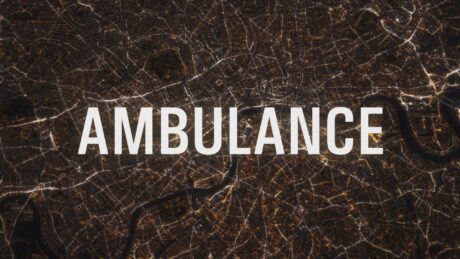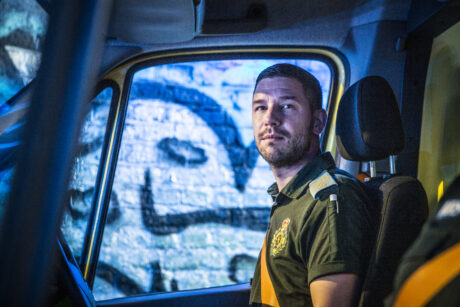This week’s episode of ‘Ambulance’ documentary
This week’s episode of the BBC documentary ‘Ambulance’ shows crews respond to a 999 call about a person hanging as figures reveal a rise in calls for suicide or attempted suicide.
Episode 7 of ‘Ambulance’ (airing Wednesday 28 October) features a mum who calls 999 after finding her 36-year-old son hanging. The call handler tells Ursula how to give her son chest compressions as ambulance crews are sent to their home.
When advanced paramedic Kevin arrives he realises they cannot save Daniel. Instead he comforts Ursula as she says goodbye to her son.
Kevin said: “I have certainly seen an increase in suicide over the past 20 years. The majority of them tend to be male.
“You feel an empathy for the family members for what they are going through and the heartache they are going to suffer.
“We haven’t found all the answers in dealing with mental health.”
The same night, a 999 call comes in from a suicidal woman. The call handler keeps her on the phone until help arrives.
Figures from London Ambulance Service show crews attended an average of 37 suicides or attempted suicides a day this year compared to an average of 22 a day the year before. Five years ago the number was 17.
In north London, paramedic Rachel and her crewmate Stuart reflect on how difficult it is for crews to respond to suicides.
They are on their way to a patient who has cancer. It prompts Stuart to open up about his own battle with testicular cancer when he was just 20 years old.

Now 33, Stuart said: “I left it for eight months before seeing a doctor and even then I didn’t tell them I had found a lump on my testicles. I said I had belly pain or I had back pain.
“I got three wrong diagnoses including appendicitis and IBS because I didn’t tell them about the lump on my testicles.”
By the time Stuart did open up to doctors, the cancer had spread and he had tumours on his lymph nodes round his liver.
London Ambulance Service Chief Executive Garrett Emmerson said:
“Tonight viewers will see some of the very distressing calls we get and the devastating impact on the patient’s family but also the impact on our crews and call handlers.
“I’m so proud of the care and compassion shown to every single one of our patients.
“This year more than ever we need to recognise the terrible toll poor mental health can have and ensure our patients – and our own people – can access the support and care they need.”
Getting support
If you need to talk to someone Samaritans are here to listen. Call 116 123 free, day or night, or email [email protected].
Shout 85258 is a free, confidential, 24/7 text messaging support service for anyone who is struggling to cope. Text SHOUT to 85258.
For urgent help, contact your local NHS urgent helpline. These helplines are for:
- 24-hour advice and support – for you, your child, your parent or someone you care for
- help to speak to a mental health professional
- an assessment to help decide on the best course of care
Get advice from 111 or ask for an urgent GP appointment if:
- you are not able to speak to your local NHS urgent mental health helpline
- you need help urgently for your mental health, but it’s not an emergency
- you’re not sure what to do
Call 999 if someone’s life is at risk or if you do not feel you can keep yourself or another safe.

Follow us on social media: